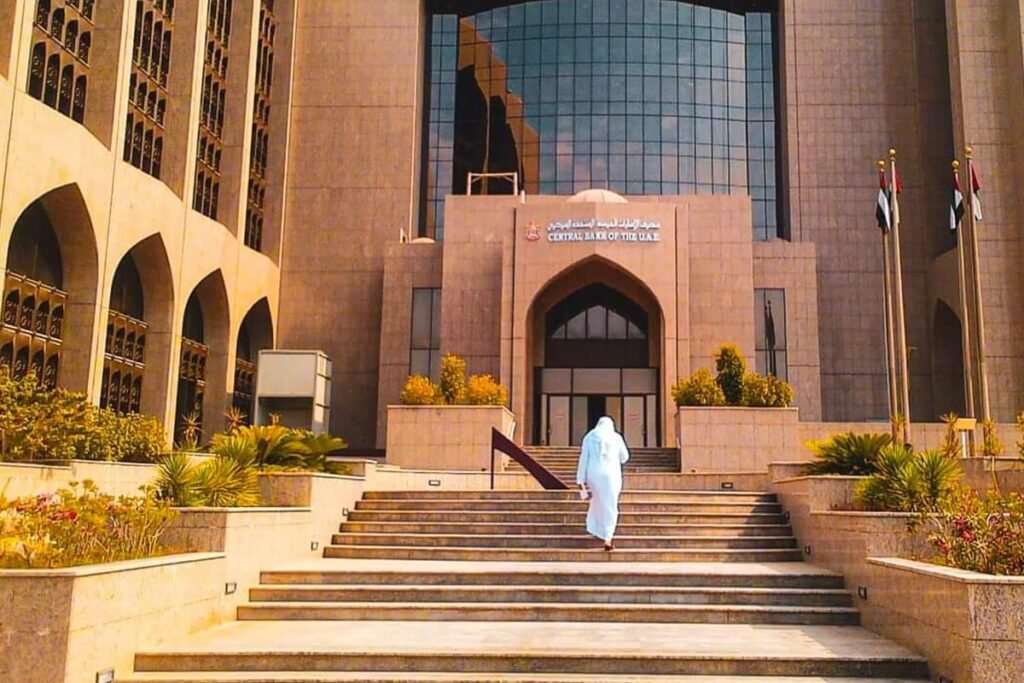The financial landscape in the United Arab Emirates has shifted dramatically as the Central Bank of the UAE (CBUAE) announced penalties totaling $3.3 million against six currency exchange houses. This landmark enforcement signals a new era of regulatory accountability and a deeper commitment to financial transparency in one of the world’s most dynamic banking hubs.
The penalties were levied following investigations into non-compliance with anti-money laundering (AML) and counter-terrorism financing (CFT) protocols. These aren’t minor administrative oversights—they represent structural and operational failures that the CBUAE can no longer afford to overlook.
This move is more than a crackdown. It’s a recalibration of expectations. The message from the top is clear: trust and compliance are no longer optional—they are essential pillars for participation in the UAE’s financial ecosystem.

Why These Fines Matter Right Now
The timing of this announcement is strategic. Global scrutiny over financial transparency has been intensifying, with institutions under pressure to meet evolving international standards. From FATF (Financial Action Task Force) evaluations to global banking alliances, the UAE is expected to demonstrate its commitment to fighting illicit financial activity.
The $3.3 million in fines imposed by the central bank reflects not just punitive action, but also the growing seriousness with which the UAE views compliance failures. For businesses that handle currency exchange, which often includes high-risk cash transactions and cross-border remittances, the risks of oversight failures are magnified.

These fines serve as a warning—but also an opportunity for institutions to reset, rebuild, and recommit to a compliance-first culture.
Behind the Sanctions: What Went Wrong?
The six exchange houses, whose names have not been disclosed, were found to be in breach of regulations tied to risk assessment, transaction monitoring, record-keeping, and reporting of suspicious activities.
These aren’t procedural hiccups—they’re the very areas where financial institutions are expected to act as the first line of defense against financial crime. Currency exchanges, given their access to vast sums of liquid assets and global clients, are particularly vulnerable to being used as conduits for illicit activity if left unchecked.
By failing to meet the standards set out in the UAE’s regulatory framework, these exchanges opened doors—however unintentionally—to potential misuse. The fines are now closing them shut.
What This Means for the Financial Sector
This is more than an isolated enforcement action—it’s a systemic signal.
Regulators are shifting from reactive to proactive. Instead of waiting for crises, they are now actively searching for weak points in the system. The UAE’s financial sector, especially non-bank financial institutions like exchange houses, are expected to respond with urgency.
For these firms, the next few months will likely bring sweeping internal reforms. Compliance departments will be expanded. Monitoring systems will be upgraded. Staff will need retraining. And boards of directors will be pressed to take more direct ownership of compliance oversight.
But while the short-term impact may be disruptive, the long-term gain is stability—and increased trust from regulators, clients, and international partners.
A Wake-Up Call for All Financial Institutions

It’s not just the penalized exchange houses that should be paying attention.
This action is a warning shot across the bow for every financial operator in the UAE—whether banks, fintech startups, or legacy institutions. The rules have changed. The level of enforcement has escalated. And expectations have evolved.
Every financial institution now faces a choice: adapt and invest in robust compliance systems or risk similar, if not harsher, penalties. The central bank has made it clear that enforcement will continue, and that tolerance for risk, negligence, or complacency is effectively zero.
Customers May Notice Changes Too
Customers who use exchange houses regularly may notice subtle shifts as well.
Expect more stringent KYC (Know Your Customer) procedures. Documents may be more closely scrutinized. Transaction limits may be adjusted. There may even be delays during peak remittance periods due to enhanced verification processes.
While this may seem inconvenient in the short term, it ultimately benefits customers. A cleaner, safer, and more trustworthy system protects everyone’s money, data, and peace of mind.
In the long run, customers can expect exchange houses to become more secure, more professional, and more aligned with international best practices.
The Ripple Effect Across the Region
The UAE’s enforcement moves could inspire similar crackdowns across the Gulf region. With Dubai and Abu Dhabi serving as financial powerhouses, other regulatory bodies in neighboring countries are likely to adopt a watch-and-learn approach.
By setting the tone for strong, enforceable compliance, the UAE is not just cleaning up its backyard—it’s setting a regional standard.
Financial institutions operating in the Middle East would do well to prepare for more inspections, more transparency, and more digital monitoring tools being adopted across jurisdictions.
Opportunities Hidden in the Fines
Though penalties typically evoke fear or caution, there’s an opportunity here for progressive players in the financial industry.
Compliance is no longer just about avoiding fines—it’s becoming a competitive differentiator. Institutions that demonstrate exceptional compliance standards will stand out to investors, attract partnerships with foreign banks, and gain faster access to regulatory approvals.
This could fuel a wave of innovation, especially in regtech (regulatory technology), where AI and data analytics are used to detect fraud, automate compliance reporting, and predict risk behavior.
Some firms may even use this moment to rebrand themselves as pioneers in transparency and financial integrity—turning crisis into capital.
What the Future Looks Like

The CBUAE is unlikely to stop at this enforcement wave. Insiders suggest that the next 12 months will include the launch of new AML/CFT frameworks, enhanced supervisory powers, and stricter controls on cross-border fund flows.
A centralized digital compliance dashboard for regulators is also rumored to be in development, offering real-time transaction analysis and automatic alerts for suspicious activity.
Meanwhile, the central bank may begin naming institutions that meet exceptional standards—creating a tiered system of trust that favors the most transparent and responsible operators.
This is the dawn of a new compliance culture, not just a policy shift.
Final Thoughts: Why This Matters Beyond the Headlines
In a global economy where reputational damage can move faster than money itself, these fines reinforce a powerful truth: trust is everything.
The UAE is investing in that trust—not just with rhetoric, but with real, measurable action. The $3.3 million in fines, while financially significant, represents something even more valuable: the cost of change and the price of integrity.
As the UAE continues to position itself as a global financial leader, moves like these are no longer surprising—they are expected. And while they may come with short-term challenges, they’re ultimately paving the way for a smarter, safer, and more respected financial future.
Do follow UAE Stories on Instagram
Read More: UAE Launches 10,000 Air-Conditioned Shelters to Protect Delivery Drivers This Summer












